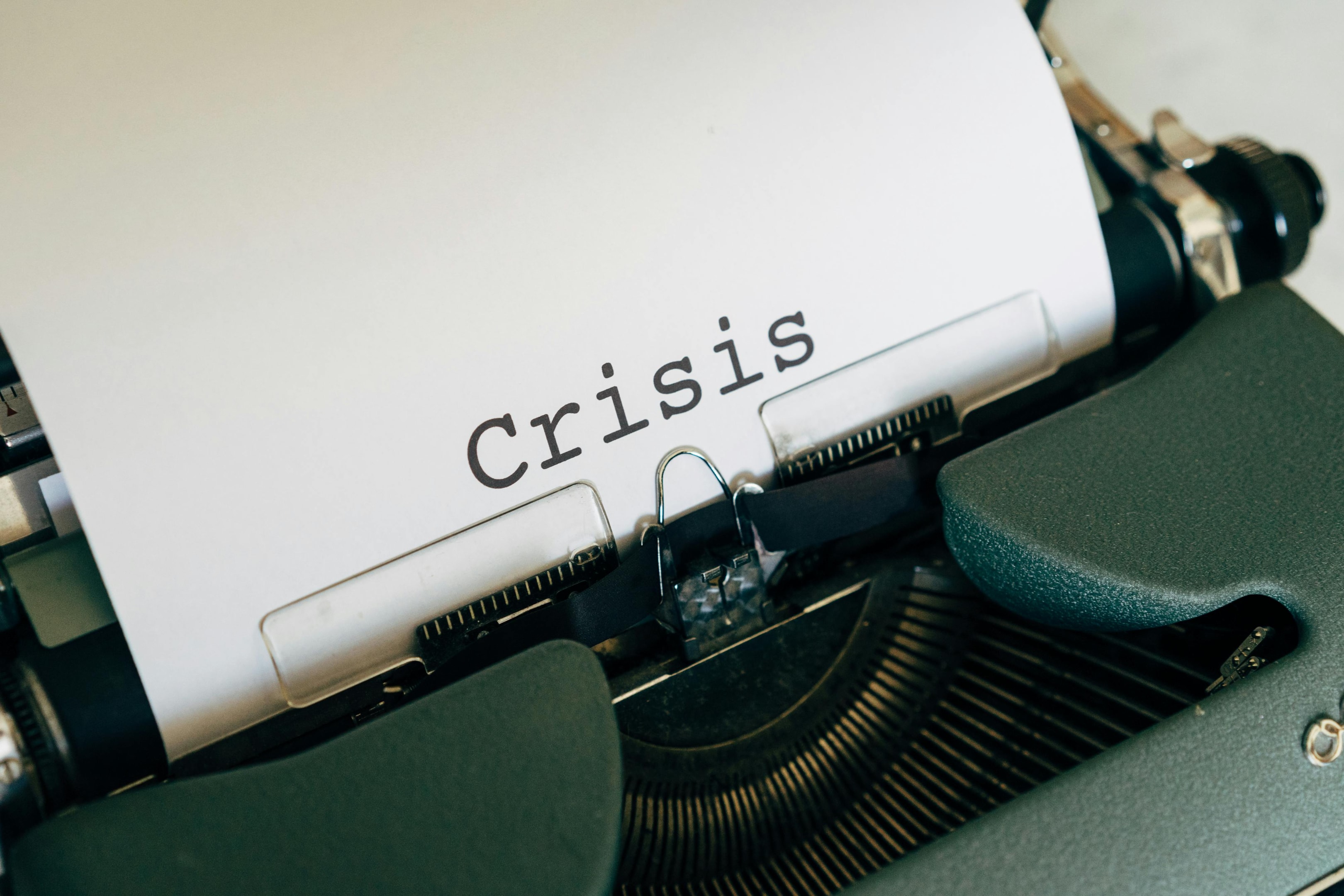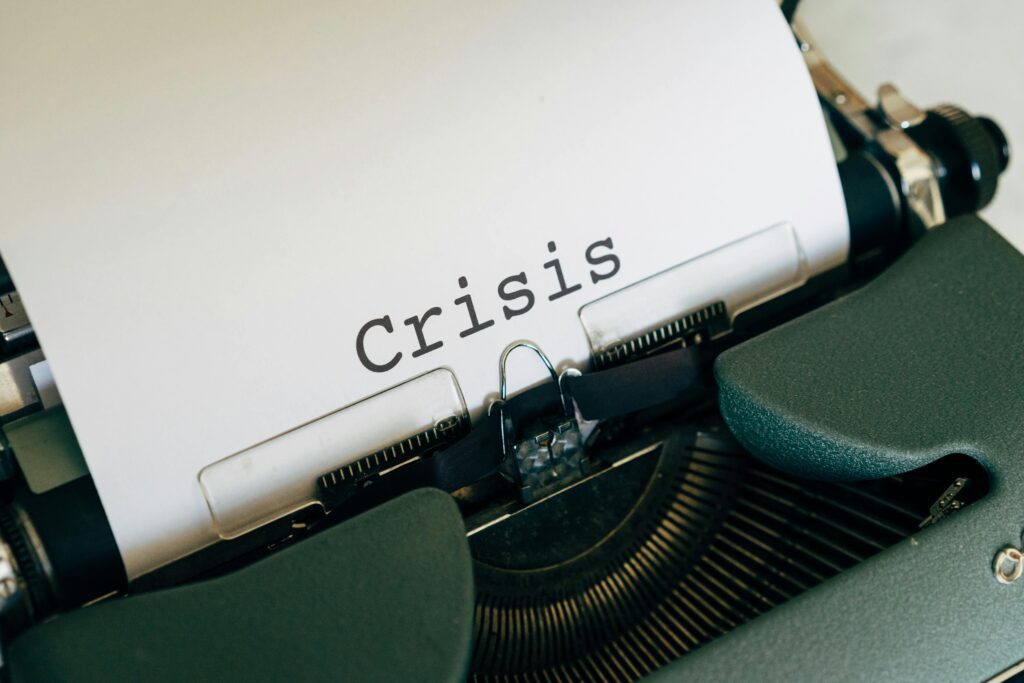Financial setbacks can be emotionally devastating, leaving you feeling overwhelmed and uncertain about the future. It’s important to recognize that while these setbacks are challenging, recovery and growth are entirely possible with the right approach. This post will guide you through coping with the emotional impact, taking practical financial steps to get back on track after a financial setback, and planning for a more stable financial future.
Aiming for complete financial wellness should be an integral part of your recovery process. True recovery isn’t just about cutting expenses or repaying debt—it’s about optimizing cash flow, protecting assets, and building long-term stability. This guide will walk you through practical steps to reset your finances and ensure lasting financial independence.
Understanding and Accepting the Setback

Emotional Acknowledgment
Recognizing and accepting your emotions is the first step in recovering from a financial setback. It’s normal to experience feelings of guilt, shame, and anxiety during this time. By acknowledging these emotions, you can begin to address them constructively and move forward.
Learning from the Experience
Analyzing what led to the setback is crucial for preventing similar issues in the future. Take a close look at the patterns or decisions that contributed to your financial difficulties. By understanding these factors, you can make more informed choices and develop better financial habits going forward.
Emotional and Mental Reset is How to Start Your Financial Recovery

Practicing Self-Care
Engaging in activities that promote mental health is essential for recovering from a financial setback. Regular exercise, meditation, and hobbies can help reduce stress and improve your overall well-being. Additionally, seeking support from friends, family, or professionals can provide the emotional backing needed during this challenging time.
Rebuilding Confidence
Rebuilding confidence is a gradual process that starts with setting small, achievable goals. These goals can provide a sense of direction and accomplishment. Celebrating small wins along the way reinforces positive progress and helps restore your self-esteem, motivating you to continue working towards larger financial objectives.
Assessing Your Financial Situation

Taking Inventory
The first step in regaining control over your finances is taking a comprehensive inventory of all your assets and liabilities. List everything you own, including cash, investments, real estate, and valuable possessions. Then, list all your debts, such as credit card balances, loans, and mortgages. This process helps you understand your current financial position and provides a clear starting point for your recovery plan.
Evaluating Expenses
Next, evaluate your monthly expenses by tracking every expenditure over a period of time. This detailed tracking will reveal where your money is going and help you identify unnecessary costs that can be reduced or eliminated. By cutting back on expenses like eating out and other forms of entertainment, you can free up cash flow during a personal financial crisis. By understanding your spending habits, you can make informed decisions to streamline your budget and free up resources for more critical financial goals.
Creating a Recovery Plan

Setting Realistic Goals
Setting realistic financial goals is crucial for your recovery plan. Start by defining short-term goals, such as reducing specific debts or saving a certain amount each month. Long-term goals might include building a retirement fund or buying a home. Prioritize debt repayment, savings, and investments to create a balanced approach that addresses immediate needs while preparing for the future. For personalized advice, consider consulting a certified financial planner who can help you with budgeting, reducing expenses, and creating an emergency fund.
Spending Strategies
A well-structured spending strategy is essential for aligning your spending with your current income. Begin by listing your monthly income and categorizing your expenses into essentials, debt repayment, and savings. Allocate your funds to ensure that your primary needs are met first, followed by making consistent payments towards debts and setting aside money for savings. Regularly review and adjust your budget to stay on track with your financial goals.
Emergency Fund
Having an emergency fund is a critical component of financial stability. This fund acts as a safety net for unexpected expenses, such as medical bills or car repairs, preventing you from going further into debt. Start by setting a modest target, such as $500 to $1,000, and gradually build it up to cover three to six months’ worth of living expenses. Regularly contribute to this fund, even if it’s a small amount each month, to ensure you’re prepared for unforeseen financial challenges. Additionally, if you have a depleted emergency fund, it is crucial to set specific goals for rebuilding it as part of your overall financial recovery plan.
Increasing Income

Exploring Additional Income Streams
Finding additional income streams can significantly accelerate your financial recovery. Consider part-time jobs, freelancing, or participating in the gig economy to supplement your primary income. Leveraging your existing skills can also open opportunities for side income, such as tutoring, consulting, or creating and selling products or services online.
Career Advancement
Advancing your career is another effective way to increase your income. Actively seek promotions or new job opportunities that offer higher salaries and better benefits. Investing in education and skills development, such as obtaining certifications or attending workshops, can enhance your qualifications and make you more competitive in the job market. This proactive approach not only boosts your earning potential but also contributes to long-term career growth and stability.
Rebuilding Credit and Managing Debt
Credit Score Recovery
Improving your credit score is a vital step in rebuilding your financial health. Start by ensuring that you pay all your bills on time, as payment history is a significant factor in your credit score. Reduce outstanding debt and avoid taking on new debt unnecessarily. Regularly monitor your credit reports from the major credit bureaus to check for errors or inaccuracies, and dispute any incorrect information to maintain an accurate credit profile.
Debt Management Strategies
Effective debt management is essential for financial recovery. Consider debt consolidation to combine multiple debts into a single, lower-interest payment, making it easier to manage and reduce overall costs. Negotiating with creditors can also help lower interest rates or create more manageable payment plans. If you find it challenging to manage debt on your own, seeking professional financial advice can provide tailored strategies and support, helping you create a realistic and effective debt repayment plan. Additionally, working with a financial advisor can offer tailored debt management strategies and valuable support throughout the process.
Long-Term Financial Planning

Investing for the Future
Planning for the long term involves making smart investment choices that can help grow your wealth over time. Start by exploring basic investment options such as stocks, bonds, mutual funds, and real estate. Each investment type has its own risk and return profile, so it’s important to understand these before committing your money. Diversifying your investment portfolio is crucial to spread risk across different asset classes, which can help protect your investments from market volatility and enhance overall returns. Additionally, incorporating tax-deferred retirement savings into your financial recovery plan can provide long-term benefits by reducing your taxable income and allowing your investments to grow tax-free until withdrawal.
Insurance and Protection
Having adequate insurance is a key component of long-term financial stability. Health insurance protects you from high medical costs, while life insurance provides financial security for your loved ones in case of your untimely death. Property insurance safeguards your valuable assets, such as your home and car, from damage or loss. Regularly review your insurance policies to ensure they offer sufficient coverage and consider updating them as your circumstances change. Proper insurance planning can prevent financial disasters and provide peace of mind. For personalized advice on insurance and protection, consider consulting with a financial professional.
Resetting after a Personal Financial Crisis Is Worth It
Recovering from a financial setback involves a blend of emotional, practical, and strategic steps. First, acknowledge and accept your emotions, learning from the experience to avoid future pitfalls. Focus on self-care and rebuild your confidence by setting small, achievable goals. Assess your financial situation by taking inventory of your assets and liabilities, and evaluate your expenses to identify unnecessary costs. Create a recovery plan by setting realistic goals, budgeting effectively, and building an emergency fund. Increase your income through additional streams and career advancement. Rebuild your credit and manage debt with consolidation, negotiation, and professional advice. Finally, plan for the long term by investing wisely and ensuring adequate insurance coverage.
Overcoming a Financial Setback: The Path to Long-Term Wealth
Financial setbacks—whether due to job loss, unexpected expenses, or poor financial decisions—can feel overwhelming. However, true financial recovery isn’t just about rebuilding—it’s about creating a financial system that prevents future setbacks and builds lasting wealth.
At Paradigm Life, we believe that financial security comes from strategically structuring your wealth, prioritizing cash flow, and using financial tools that provide certainty—not from living on a tight budget or depending on market-based investments.
Step 1: Reframe Your Financial Mindset
Many people react to financial setbacks by focusing on cutting expenses, eliminating debt, or increasing income through side jobs. While these can be helpful in the short term, they don’t create long-term financial certainty. Instead, shift your focus from limitation to optimization:
- Cash Flow First – Instead of focusing on savings depletion, find ways to create ongoing, predictable income.
- Liquidity Over Restriction – A strong financial foundation ensures that money is accessible when needed—not locked away in volatile investments.
- Protection Creates Stability – Without financial protection, every setback is a crisis. The right strategy ensures setbacks don’t derail your financial future.
Step 2: Build a Financial Safety Net with Whole Life Insurance
Most people think of emergency funds as cash savings in a bank account. While cash reserves are important, they are not the most efficient way to build financial security.
Instead, a properly structured Whole Life Insurance policy offers:
- Guaranteed Cash Value Growth – Unlike market-based assets, whole life insurance builds wealth steadily.
- Tax-Advantaged Liquidity – Policy loans allow access to funds without penalties or tax consequences.
- Asset Protection – Unlike a traditional savings account, whole life policies are shielded from creditors in many states.
- Generational Wealth Transfer – The death benefit ensures financial security for your heirs, preventing future financial setbacks.
By utilizing Whole Life Insurance as a volatility buffer, you can prevent financial crises from forcing asset liquidation or relying on high-interest debt.
Step 3: Optimize Cash Flow Instead of Cutting Expenses
Rather than focusing solely on cutting expenses, the key to long-term financial recovery is optimizing cash flow. This means ensuring that your income is stable, diversified, and not dependent on external factors like job stability or market conditions.
Cash Flow Strategies Include:
- Using Whole Life Insurance Loans – Instead of withdrawing from volatile investments, policy loans provide liquidity without interrupting compounding growth.
- Creating Passive Income Streams – Investments in real estate, private lending, or secured investments can generate cash flow without the risks of the stock market.
- Business & Entrepreneurial Ventures – Unlike traditional employment, business ownership allows for control over income and tax advantages.
Example: Instead of focusing on repaying debt aggressively, a better strategy may be to redirect funds into a cash-flowing asset that generates additional income. This approach creates financial resilience rather than just eliminating liabilities.
Step 4: The Family Bank Strategy—Prevent Future Setbacks
Financial setbacks don’t just affect you—they impact future generations. One of the most powerful strategies for preventing financial hardship is The Family Bank Strategy.
How It Works:
- Use Whole Life Insurance as a Financial Hub – Build a pool of capital that can be accessed for investments, emergencies, or family needs.
- Finance Instead of Borrowing – Instead of taking high-interest loans from banks, borrow from your policy at a lower cost.
- Teach Wealth Stewardship – Structure your family’s finances so that future generations have a self-sustaining financial ecosystem.
Example: If you experience a financial setback, instead of selling investments or draining savings, you could borrow from your policy’s cash value, continue to earn interest, and repay yourself instead of a bank.
Step 5: Protect Your Wealth for the Long Term
While financial setbacks are often seen as isolated events, they usually expose weaknesses in financial planning. The key to long-term recovery is fortifying your financial strategy so that setbacks become minor bumps—not devastating crises.
Key Areas of Protection:
- Estate Planning – Ensure that assets pass to heirs efficiently, without unnecessary taxation.
- Tax Optimization – Use strategic investment vehicles to minimize tax burdens and maximize growth.
- Insurance as a Financial Shield – Whole life insurance guarantees liquidity and stability when unexpected expenses arise.
FAQ Section
How long does it take to recover from a financial setback?
The time it takes to recover from a financial setback varies depending on the severity of the setback and your individual circumstances. It can range from a few months to several years. Consistently following a structured recovery plan can significantly speed up the process.
What are the best ways to rebuild credit?
Rebuilding credit involves making timely payments, reducing outstanding debt, and regularly monitoring your credit report for errors. It’s important to use credit responsibly and avoid taking on new debt unnecessarily.
Can I recover from a major financial loss?
Yes, recovering from a major financial setback or loss is possible with determination and a strategic approach. Start by assessing your situation, creating a realistic recovery plan, and seeking support when needed. Focus on rebuilding your confidence and taking incremental steps towards financial stability.
Turning Financial Setbacks into Long-Term Stability
Remember, financial setbacks are temporary and with determination, recovery is achievable. Embrace the journey of rebuilding with resilience, knowing that each step brings you closer to financial stability and success. Your experiences now will only make you stronger and better prepared for future challenges.
We encourage you to share your experiences and tips on recovering from financial setbacks in the comments below. Your stories can provide valuable insights and support for others facing similar challenges. Feel free to ask questions and engage in discussions to further enhance your financial knowledge and strategies. Together, we can build a community of resilience and success.







